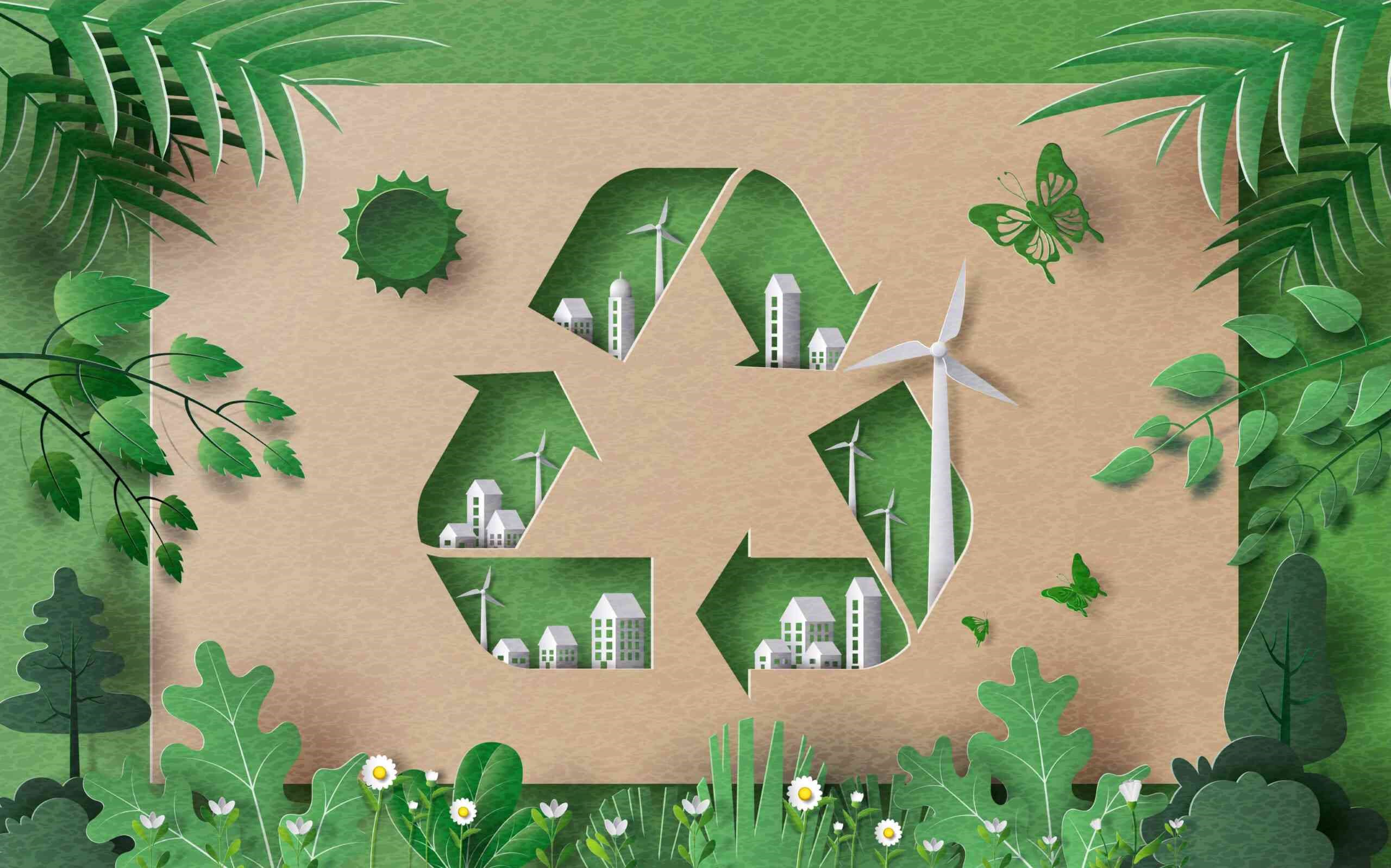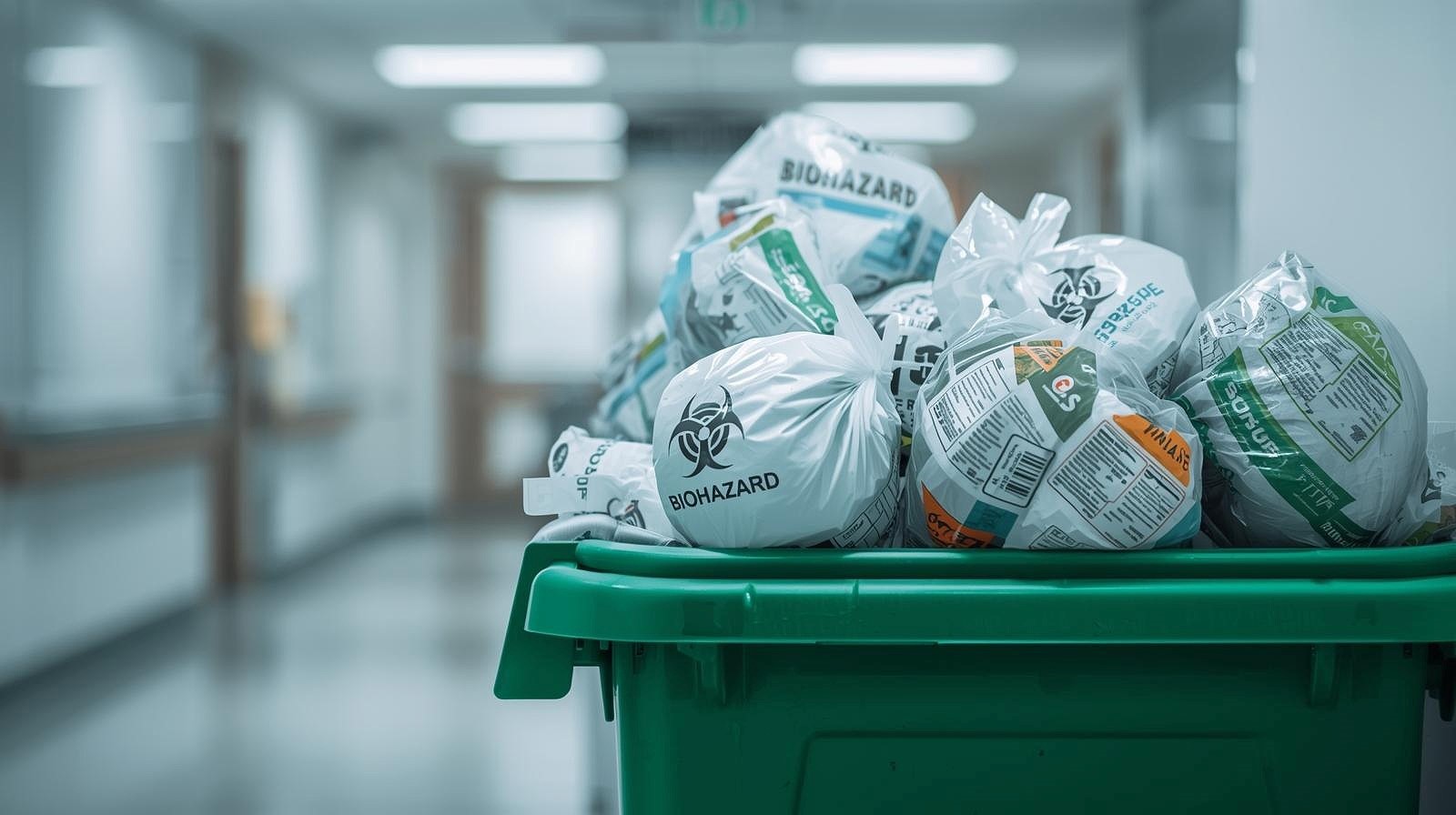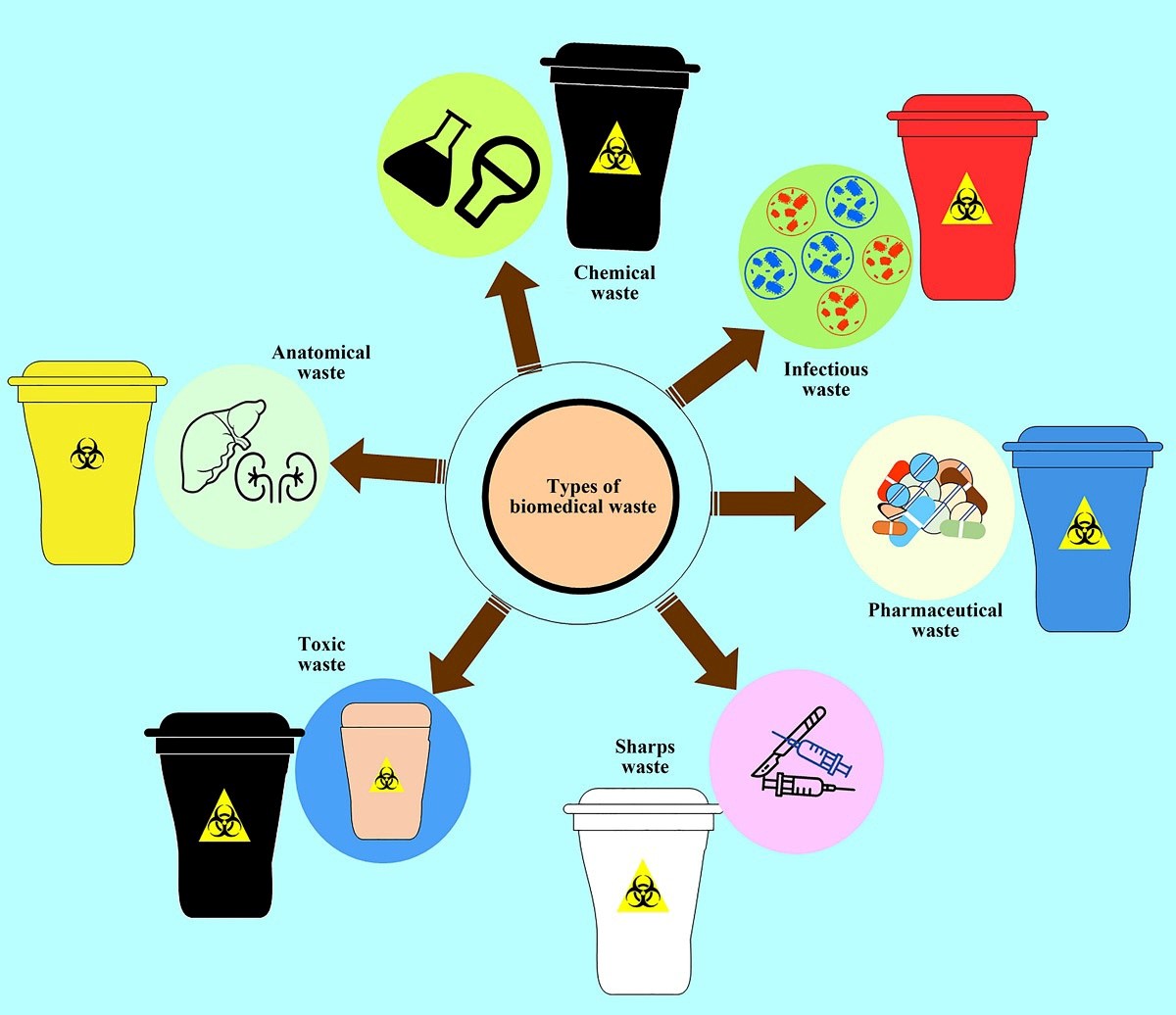In the rapidly evolving landscape of global healthcare, laboratories, and research institutions, sustainability has become a central focus, yet one critical element often remains under addressed: biohazard waste management. Every day, hospitals, clinics, and diagnostic centers generate vast quantities of infectious materials, ranging from used syringes and gloves to pathological samples and contaminated instruments. Without responsible handling, treatment, and disposal, these biohazardous materials can cause significant harm to public health, disrupt ecosystems, and accelerate environmental degradation. Implementing effective and sustainable waste management practices is therefore essential for building a safer and greener future in the healthcare industry.

The Growing Challenge of Biohazard Waste
The global healthcare system produces millions of tons of medical waste mannually, and a significant portion of it is classified as biohazardous. This category includes anything contaminated with blood, bodily fluids, or infectious agents. Improper disposal can lead to soil and water contamination, spread of disease, and even release of toxic substances into the air through incineration without filtration.
Unfortunately, in many developing regions, outdated methods like open burning and uncontrolled dumping are still in use. These practices not only pollute the environment but also endanger workers and nearby communities. The need for responsible biohazard waste disposal has never been more urgent.
Partnering with Certified Providers for Safer Medical Waste Disposal
As the demand for efficient Medical Waste Disposal Services continues to grow, healthcare organizations are increasingly recognizing the importance of partnering with certified providers that follow strict environmental and safety regulations. Professional Medical Waste Disposal companies not only ensure compliance with local and international laws but also help reduce operational risks for hospitals, laboratories, and clinics.
What Responsible Disposal Really Means
Responsible biohazard waste disposal goes far beyond simply “getting rid” of medical waste. It involves a systematic, regulated, and eco-conscious process designed to minimize risk and environmental impact at every stage.
- Segregation at Source: The process starts where the waste is generated. Different color-coded containers help separate sharps, infectious waste, and non-hazardous materials. Proper segregation reduces contamination and makes downstream treatment safer and more efficient.
- Safe Transportation and Storage: Waste must be securely stored and transported in leak-proof, labeled containers to prevent exposure during handling. GPS tracking and documentation ensure transparency and compliance with environmental laws.
- Eco-friendly Treatment Methods: Modern disposal systems now emphasize sustainable alternatives such as autoclaving, microwave disinfection, and chemical neutralization, which destroy pathogens without harmful emissions. Advanced incineration technologies equipped with air filters and scrubbers are also used to prevent toxic gas release.
- Recycling and Energy Recovery: Certain types of treated waste can be safely converted into reusable materials or energy. This approach not only minimizes landfill use but also supports the global transition toward a circular economy.
- Training and Compliance: Staff training and adherence to international safety standards like WHO and OSHA guidelines are vital for maintaining both safety and sustainability.

Environmental and Social Impact
The benefits of responsible biohazard waste disposal extend beyond hospitals and laboratories. By preventing contamination of soil and water, it protects ecosystems and wildlife. Moreover, it fosters a healthier community, reducing the risk of disease outbreaks and improving the quality of life in nearby areas.
From a broader perspective, sustainable waste management aligns with global climate goals. Reducing the carbon footprint of medical waste treatment helps healthcare institutions contribute to a greener future while maintaining operational safety and compliance.
How Technology is Driving Change
Emerging technologies are revolutionizing how facilities handle medical waste. Smart tracking systems, AI-based sorting, and IoT-enabled waste bins are making it easier to monitor waste generation, optimize collection routes, and ensure compliance with regulations in real time.
Furthermore, eco-friendly sterilization methods are becoming increasingly cost-effective, allowing smaller clinics and research labs to adopt responsible waste disposal practices without financial strain.
The Role of Policy and Collaboration
Governmental and private sector collaboration plays a key role in advancing responsible biohazard waste management. Clear legislation, financial incentives, and investment in infrastructure can help standardize best practices. Partnerships between healthcare institutions and certified waste management companies ensure that disposal processes remain both compliant and sustainable.

Looking Ahead: A Greener Tomorrow
Creating a sustainable future for healthcare requires every stakeholder to take responsibility. From hospital administrators and medical professionals to policymakers and waste management experts, everyone plays a role. Adopting eco-friendly practices today will ensure a cleaner, safer planet for generations to come.
The journey toward a greener future begins with awareness and action. By embracing responsible biohazard waste disposal, we can protect not only human health but also the delicate balance of our environment.
Investing in Sustainable Medical Waste Services for a Greener Future
Modern service providers use advanced treatment technologies, such as steam sterilization, shredding, and chemical disinfection, to safely neutralize hazardous materials without harming the planet. Many of these companies also offer real-time waste tracking and digital documentation, giving healthcare managers full transparency and control over their waste management processes. In the long run, investing in responsible Medical Waste Disposal helps create a cleaner, safer, and more sustainable healthcare system for future generations.
Conclusion
Responsible biohazard waste disposal not only safeguards public health and healthcare workers but also plays a crucial role in protecting the environment and reducing pollution. By implementing sustainable practices, leveraging modern technologies, and partnering with professional Medical Waste Disposal Services, healthcare facilities can make their waste management processes safer and more efficient.
Investing in this sector, in line with international standards, not only minimizes risks but also contributes to a cleaner, safer, and environmentally friendly healthcare system for future generations. Ultimately, building a greener and sustainable future begins with awareness, responsible action, and collaboration among all stakeholders.